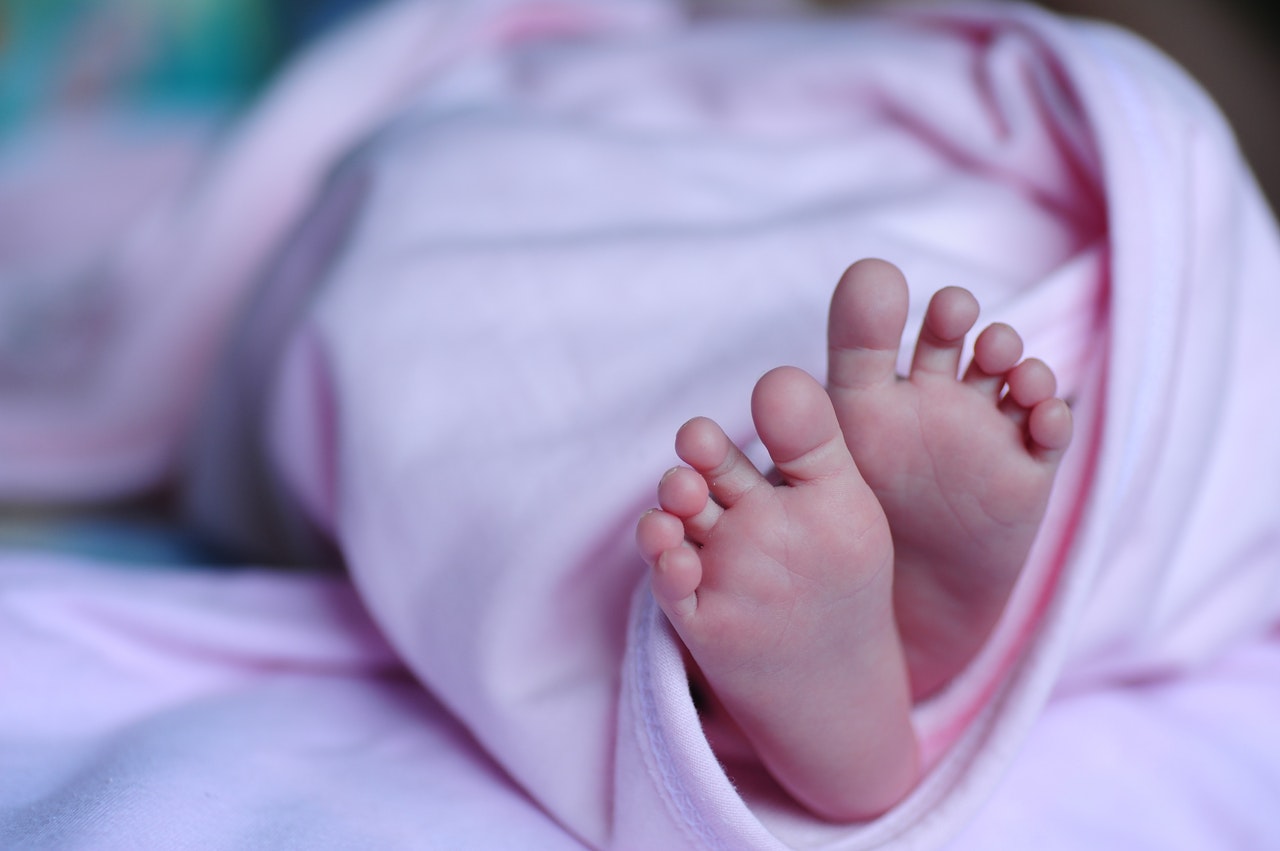 I love a good birth story. I love hearing my mommy friends’ labor stories, and binge watching Call the Midwife. For the longest time though, I didn’t love my birth story. It is hard to talk about my story because my emotions make me feel guilty, and I worry I might be perceived as crazy or ungrateful. I am learning lately the power of vulnerability and the bravery of owning and sharing your story. Who knows, maybe someone needs to hear it.
I love a good birth story. I love hearing my mommy friends’ labor stories, and binge watching Call the Midwife. For the longest time though, I didn’t love my birth story. It is hard to talk about my story because my emotions make me feel guilty, and I worry I might be perceived as crazy or ungrateful. I am learning lately the power of vulnerability and the bravery of owning and sharing your story. Who knows, maybe someone needs to hear it.
So, this is the story of my firstborn daughter — how nothing about her birth went the way I expected — and how I experienced birth the first time as trauma. It is also the story of how I’ve found healing along the way.
When 40 weeks came around and I was pregnant the first time, I was ready. There was a birth plan. We read all the books, did our research, and took a class. Most people probably don’t get to have overlapping pregnancies with their best friend, but I did (both times, not planned!). So months before my due date, I watched in awe as my friend bravely labored at home naturally until it was time to go to the hospital, where she then gave birth epidural-free like the boss mom she is. I held her sweet baby and anxiously rubbed my still-pregnant belly, imagining my own birth. Seeing her step into motherhood made me braver, and I had the same two amazing doulas she used on standby to coach me (and my husband) through the hard parts. I. Was. READY.
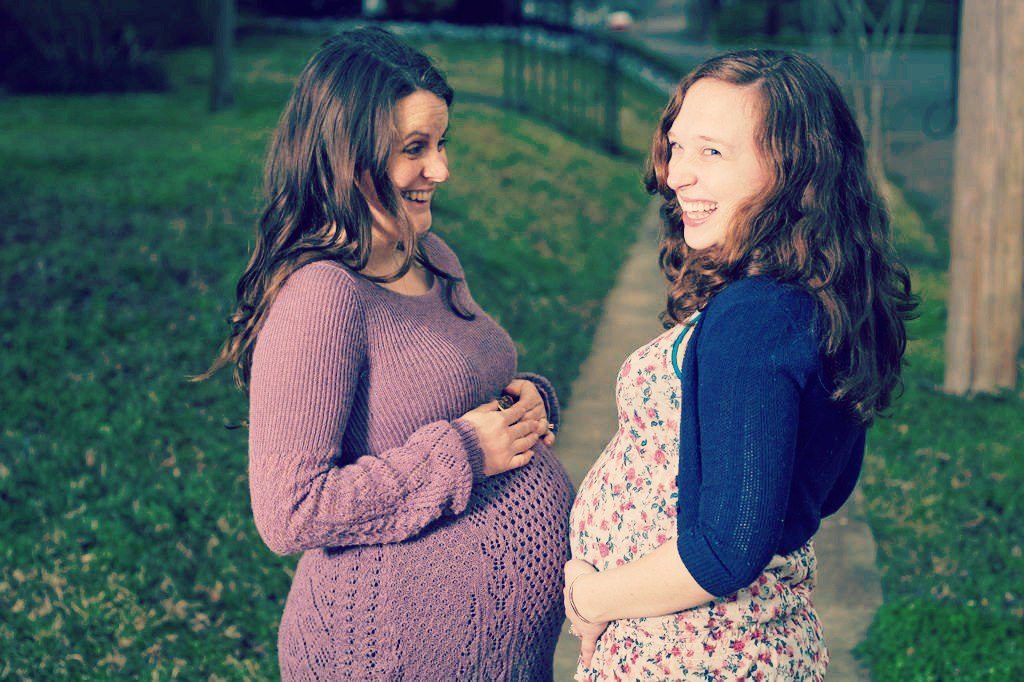
Then at 40 weeks + 1 day my water broke.
Everyone knows from the movies that when your water breaks, just a few moments later insane contractions begin. You’re doubled over in pain and you know it’s time. But when my water broke, nothing happened except I leaked whenever I walked waddled. Our doulas and doctor said contractions would probably start on their own soon. In the meantime, my husband and I walked laps around the neighborhood. I bounced on my yoga ball and packed some last-minute items in the hospital bag. After a while, my doulas thought that even though my contractions weren’t consistent, we should go to the hospital to check my fluid levels. Though the plan had been to labor at home for as long as I could, we erred on the side of caution.
12 hours later, my contractions still had not started, even after walking the hospital halls, doing lunges, climbing steps, and using a hospital-grade breast pump to try to induce labor naturally.
I never gained any momentum on my own. My husband and doulas advocated again and again for more time before the dreaded (in my mind) p-word was administered — Pitocin — the synthetic form of oxytocin doctors use to induce contractions. I wanted to avoid Pitocin, but in the end, my doctor insisted on inducing.
It took another 15 hours of laboring before I was ready to push. Pitocin caused the most painful contractions I miraculously can’t remember — so painful I finally begged for an epidural. Actually, I never “progressed” much until I finally gave in to the epidural. My all natural birth plan was scrapped. I only remember my husband counting between pushes and holding one hand, my mom holding my other, and a doula and a nurse holding each of my legs. Nothing had gone the way I had planned, but after she was born, I expected to hear her cry and have that sweet skin-to-skin moment before my husband cut the cord and nurses cleaned her up.
I expected her to be breathing, but she wasn’t. Not right away.
As they cut the cord and rushed her blue body to the corner of the room, I remember asking again and again if she was ok. Everyone in the room spoke to me calmly, but nobody was confident enough to say she was actually ok. Months later my mom told me in those first moments after she was born, she thought my daughter was stillborn — I thank God that was not the road we had to walk. They resuscitated her with the machine, and took her away with the pediatric team. If I had been able to walk, there is no doubt in my mind I would have tried to leave the room to be by her side.
It was probably minutes, but it felt like hours, before someone came and told us what was going on.
The doctors were not sure whether the resuscitation machine had caused her lungs to collapse, or if she had been born from the start with collapsed lungs. They inserted chest tubes and drained the equivalent of a large water bottle full of air from around her tiny lungs. She was stable with a ventilator, but they were transferring her via ambulance to the children’s hospital in Chattanooga with a better NICU. Instead of having a quiet first hour of bonding and breastfeeding my new baby, I found myself learning the mechanics of a breast pump and trying to hand express those first liquid-gold drops of colostrum to send with her.
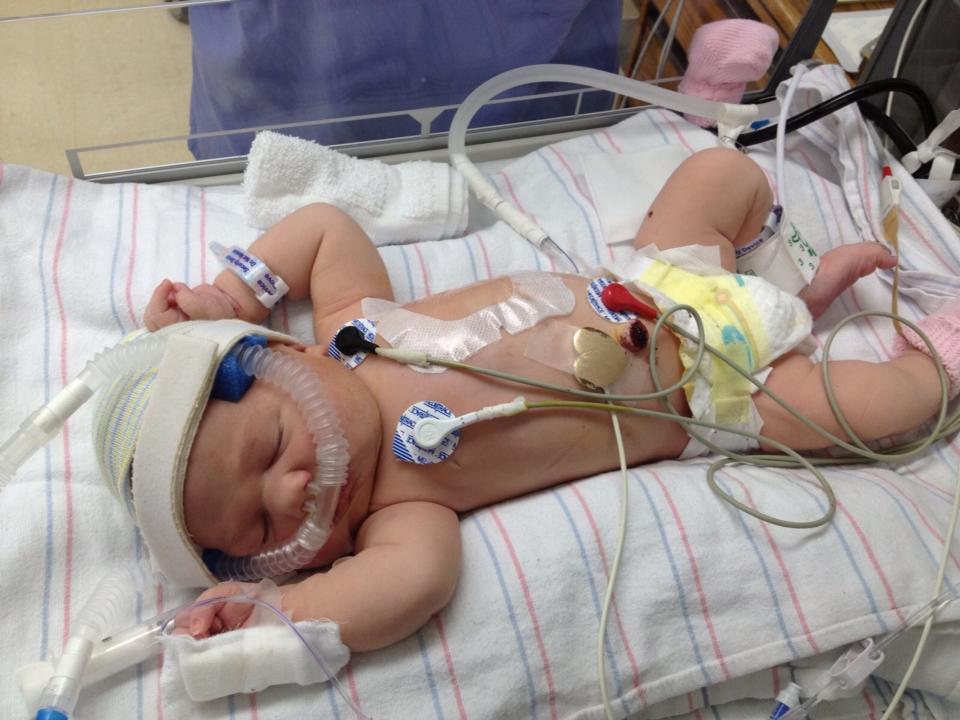
The first time I saw her, she had tubes and wires all over her tiny 8 pound body. “She’s a fighter,” the nurse reassured me, “She tried to swat the ventilator away.” After she left in the ambulance, we convinced my doctor to release me early so I could go be near my daughter. The Ronald McDonald House became our second home while we spent as much time as we could at the NICU. For the first few days, we could not touch her — my strongest instinct and deepest longing — because it was too stimulating. Her wiggly response to our touch could move her chest tubes or monitors.
The NICU days were the longest, hardest days of my life — and I cried every day, a lot.
My grief over her birth felt wrong, because I looked at the tiny babies all around us, and knew that many families had much harder journeys ahead. NICU preemie moms are strong and amazing heroes in my book. The only emotion I thought I should feel was thankful. My baby was alive. My baby was full term and a healthy weight. My baby would leave the hospital in two weeks when so many around us had months ahead of them.
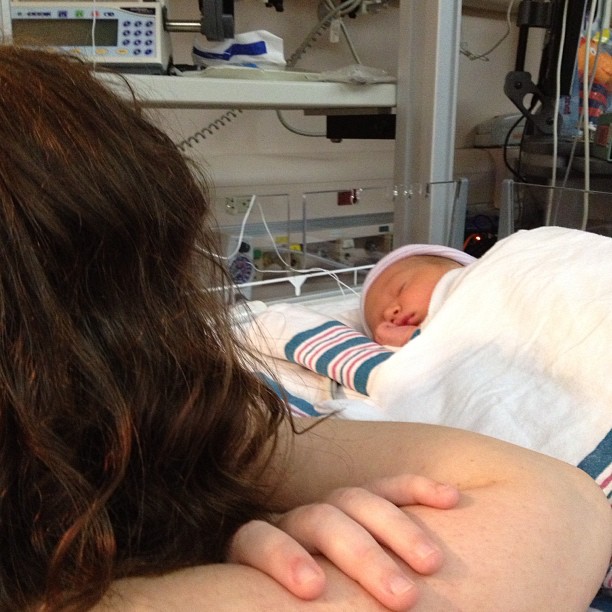
The grief didn’t stop even after we took home a healthy baby girl.
Every day I thought about her birth. I wondered if I caused her lungs to collapse by getting the epidural, or if it had been the Pitocin. I wondered if I waited too long to go to the hospital, or if I should have waited longer. Even six months later I relived her birth almost daily. I researched her medical circumstances on my lunch breaks to find out why this had happened, and even though her doctors reassured me she was completely fine, I still worried about long-term effects on her health or development. I even began to irrationally project my trauma on to her. What if she remembered feeling afraid and abandoned by our initial separation? This is the part where I fear I sound crazy. It isn’t lost on me that this all made no sense. No one remembers their own birth, Becky. I know.
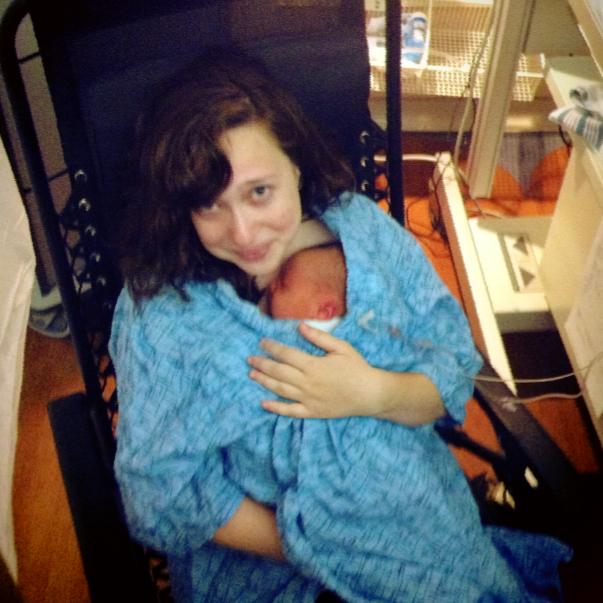
I struggled with these thoughts silently because I didn’t want to be the new mom who was losing it.
I held it together on the outside and went back to work, finished my last semester of my degree, and juggled all of the normal struggles of being a new mom. When I got pregnant the second time, I faced a mountain of unresolved anxiety. A new doctor told me something no one else had: that actually 1 in 300 babies are born with collapsed lungs. He said that anything from the baby’s position, to it being my first pregnancy could have stalled my labor in the beginning. Most importantly, he told me that what had happened was not my fault. My second birth story is much more “normal” — another blog for another day. It was healing for me in so many ways, but the biggest way was that it allowed me to confront my anxiety and work through the emotions of my first birth experience






















Thanks so much for sharing your story Becky. Birth is a beautiful thing but also very scary because of so many unknowns and things out of our control. You are definitely not alone in your feelings!
I am one of those NICU moms with the tiny baby and the long road ahead. My son spent 11 weeks in NICU after being born 3 months early. I have had friend after friend admit to feeling traumatized by their birth experience with a caveat of “but I know it is nothing compared to what you went through” and I always, always stop them. It is your story. It is your experience. It is NOT nothing. Your feelings are valid because you are experiencing them. We can only see the world through our own lense. I had a second baby- full term, no NICU, healthy baby but a forced cesarean and it hurt more than my first experience. Each experience is unique. Thank you for sharing your story. It is so needed.
I have a very similar experience to yours. It’s eerie. My baby girl was born with pneumonia because my water was broken too long (they think). I know exactly what you mean about grieving the experience you thought you would get. I know the pain of having your child whisked away, and not being able to hold her for days. That was the worst part. Her crying and not being able to comfort her went against my every maternal instinct and was the most painful thing I have ever gone through. I wanted to just grab her away from all those tubes and wires and say “it’s not too stimulating. **** you she needs me, I’m her mother”. Her tiny body covered in medical equipment. She had a tiny cpap mask over her face. Uhg I definitely have ptsd from that and I feel like I need to go to therapy before I have another baby. I’m so glad to hear your second birth was good, and healing. I know exactly what you mean about projecting our emotions onto them. My girl has nightmares (she is only 6 months and she has has them for months now) and I always wonder if she’s dreaming about her trauma of birth and feeling abandoned by me afterwards. I know that’s irrational but a big part of me believes that. Anyways I don’t mean to make this about me but it’s nice to read something like this. People really don’t talk about it much. But I know I’m still healing from my birth and no one asks me about my labor this far out so I don’t get to talk to anyone about it. Thank you for sharing this. <3
Comments are closed.